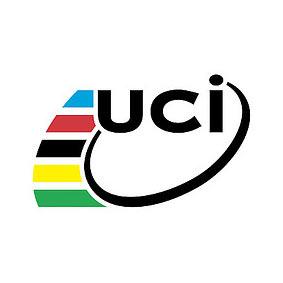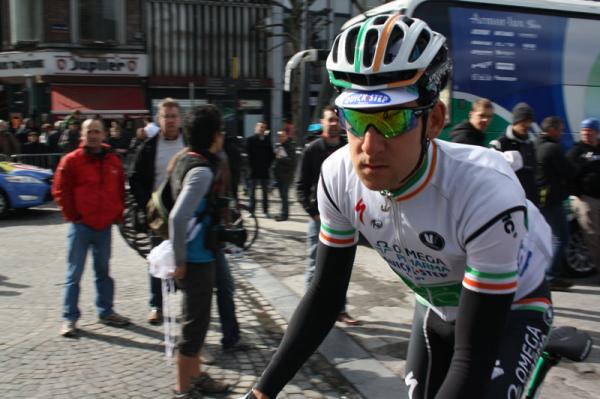UCI WorldTour has revitalized cycling, says coordinator
Admits there are flaws in the system
The latest race content, interviews, features, reviews and expert buying guides, direct to your inbox!
You are now subscribed
Your newsletter sign-up was successful


UCI WorldTour coordinator Javier Barrio has defended the ranking system in place at the top level of the sport, insisting that the “WorldTour has revitalized cycling”.
However, Barrio also admitted that there are flaws in the system relating to the allocation of points, but says that the UCI is tackling issues such as the lack of recognition the system gives to domestiques.
Speaking to Basque newspaper Deia, Barrio explained that the guiding force behind the establishment of the WorldTour was to provide a hierarchy similar to those in other sports, but admitted that the UCI has not communicated this as well as it could have done. The basic premise, said Barrio, is to promote the sport’s leading events such as the Giro, Tour and the Classics rather than to rival them.
“I think it’s contributed a great deal towards the evolution of cycling. The key word is league. Now everyone can talk about something that starts with 18 teams in January and by October there is a classification that determines who is the top rider, which is the best team and which is the strongest nation… Now in every race there is something in play, there are crucial points at stake that ensure teams always take the races seriously. We have generated interested in a more consistent way.”
Barrio admitted: “The system is imperfect, we can’t deny that, but it has revitalized cycling, although it appears that some people don’t want to acknowledge that fact.”
The WorldTour coordinator then went on to answer one of the regular criticisms of the system, that riders competing on the continental tours become valuable because of the points they hold rather than the ability they have. Asked to comment on the case of Iranian Mahdi Sohrabi, who provided Lotto-Belisol with a significant number of ranking points at the start of 2012 but has been released after just a season with them having failed to finish all but one of the stage races he lined up in, Barrio said: “This did happen, it is true, but this wasn’t the aim of the points system.
“What it is intended to do is to spread excellence across the world… not to give opportunities to those who don’t deserve it. It should be pointed out that I believe Sohrabi deserved his chance."
The latest race content, interviews, features, reviews and expert buying guides, direct to your inbox!
Yet Barrio admitted that the UCI has recalibrated the weighting given to points won on the continental tours compared to those gained on the WorldTour. “We are working on that now. In the first year, points earned on the Europa Tour carried 60% of the value of those on the WorldTour. We could see that was excessive and we reduced it to 50%. It is possible that it is still not all that well calibrated and it exaggerates the value of points won by certain riders. But these things happen and they don’t bring the whole system into question.”
Challenged on complaints made by several top-level domestiques that they feel their efforts are not valued by the points system, Barrio responded: “That is another problem. But people have to understand that there would be no World Tour without a points system. Although not everyone is happy and there are some small problems with it, the net benefit will always be greater.
“For example, it has played a key role towards reconciliation within cycling. We no longer have the wars that we saw between organizers in 2008 and 2009. We are in a much better place now in 2012 than we were in 2010, just before the WorldTour was launched.”
The system, added Barrio, had been created for one reason but has been exploited for another very different reason. “I’m referring to the wages paid to riders. We never thought about this, but riders and their representatives have started to use points as a basis for setting out salary demands… We are trying to adjust this aspect. In the first year of the WorldTour the number of riders on each team that had to have points was 15, in 2012 we reduced it to 12, and as we can see that this is still excessive we will be proposing that it is reduced to eight in 2013.
There have also been regular complaints about points being held by riders rather than their teams, resulting in a situation where teams lose significant points if key riders move on to other squads. Barrio said there have been discussions about allocating a percentage of points won by riders to their teams, but no agreement has been reached on the proposal.
“This debate is not closed, but it also needs to be understood that the percentage that remains with the team can’t be excessive because if it is it would prevent the emergence of new teams and sponsors... Would it be right to keep a team at the top level that doesn’t deserve to be in the WorldTour because of the quality of the riders on its roster? This has happened. There have been teams that, having secured their place, have allowed their stars to leave. This was an abuse of the system,” said Barrio.
Peter Cossins has written about professional cycling since 1993 and is a contributing editor to Procycling. He is the author of The Monuments: The Grit and the Glory of Cycling's Greatest One-Day Races (Bloomsbury, March 2014) and has translated Christophe Bassons' autobiography, A Clean Break (Bloomsbury, July 2014).
